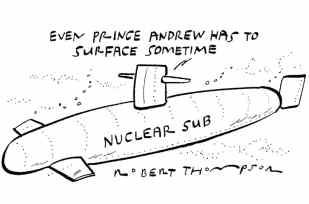Flying has always attracted chancers and characters to Africa. Wilbur Smith’s father so loved aviation he named his son to honour the Wright Brothers. ‘I am forever grateful he didn’t go for Orville,’ the Zambian-born author once confided. Smith father and son may well have approved of Giles Foden’s romping novel, which has African bush pilots at its core, and a style not dissimilar to that of an airport thriller.
School-age dreamer Emmanuel ‘Manu’ Kwizera comes from the implausibly beautiful hill country of eastern Congo. Green though the land is, its recent history is anything but pleasant: a plunge pool of horrific violence, backwash from the 1994 Rwandan genocide. Foden skilfully uses the grim fate of the Kwizera family — too Tutsi to be Congolese, not Tutsi enough to be Rwandan — to set the scene, as hyena-like rebel groups pull the crumbling dictatorship of Joseph-Désiré Mobutu to pieces.

Exposition is not for the fainthearted when dealing with the Great Lakes region of central Africa. Some readers may have a grasp of Tutsi; far fewer will of Banyamulenge, let alone Munyamulenge. Still, Foden goes at it bravely and is to be commended.
This novel is not for the squeamish: father choked to death, raped mother burned alive, sister shot in the back, family’s beloved cow Joséphine — named to mock the kleptocrat of Kinshasa — stolen for the pot. Manu emerges as a rootless orphan, press-ganged into acts of ruthlessness by murderous rebels.
But acting like a traumatised knight errant, he manages to escape, falling in with an unofficial mess of plane-for-hire pilots based at Uganda’s Entebbe airport, the one made famous by the Israeli raid two decades earlier. Taught how to fly by these so-called ‘freight dogs’, Manu slips not just the surly bonds of Earth but morality too. A series of flights into various conflict zones teaches him not just how to control a plane but how to survive alongside liars and smugglers, gamblers and gun-runners, spooks and mercenaries.
The novel is convincingly authentic in the writing — testament to Foden’s pedigree as a journalist. We almost taste the Ugandan rolex, a spicy wrap sold as street food. And we can hear the swish of the rain capes and squelch of welly boots, the signature uniform of rebels fighting in the rainforest. To drive Manu’s odyssey, Foden uses the historic milestones of Congo’s disintegration, such as when the pilot is forced to take part in what remains Africa’s most audacious airborne coup d’élan: the mass deployment by plane of Rwandan troops to menace Kinshasa from an airport close by the Congolese capital.
But the characters never quite take off. Manu’s mentor is a hard-drinking Texan in a stetson, who smokes cigars and cheats on his wife. It’s one thing for a character to speak in cliché, another for their descriptors to lack originality. Foden is a brilliant voice and African observer, with a pedigree for fiction in Uganda — The Last King of Scotland — and non-fiction in the Congo — Mimi and Toutou’s Big Adventure. But somehow Freight Dogs feels like he has teased us without reaching a climax — or, to use the post-coital words he gives one of Manu’s lovers in the book: ‘That was a bit quick. You’ve left me panting.’






Comments